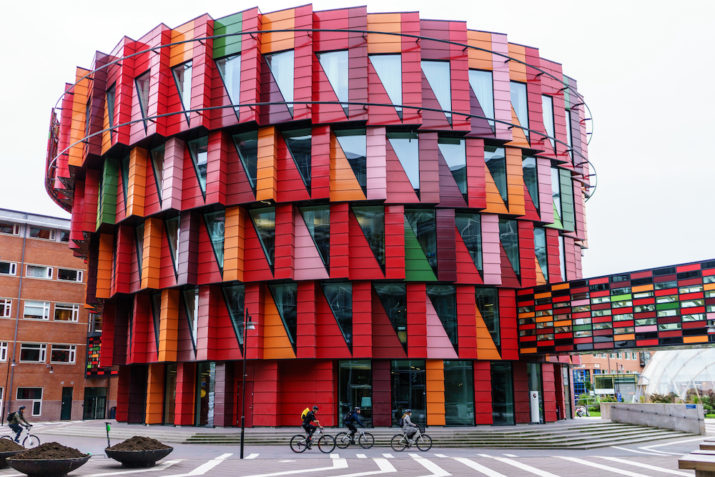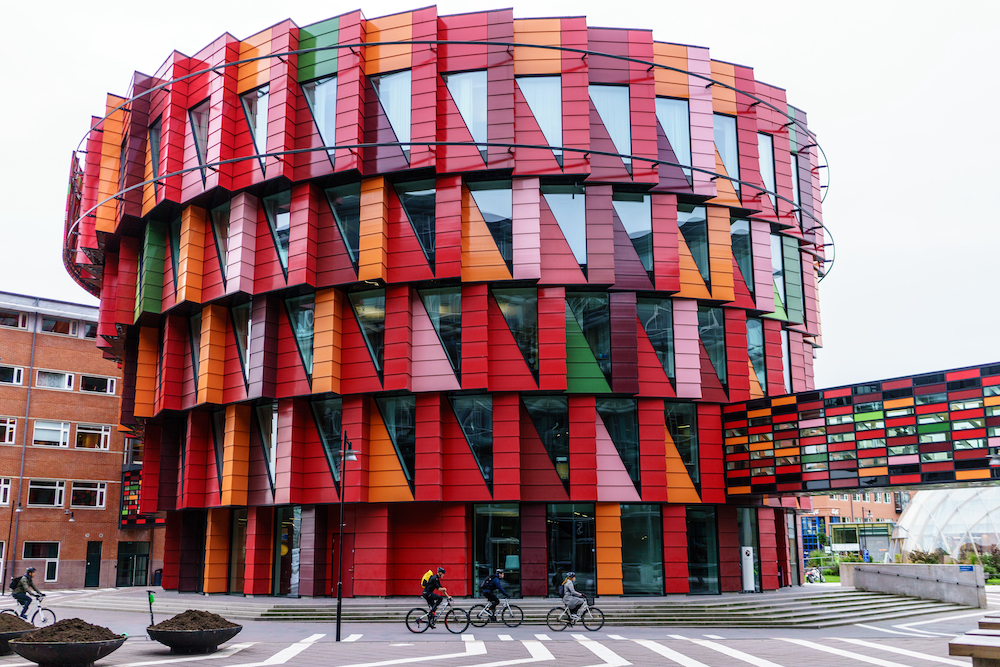

In this section of Campus, EuropeNow features a selection of scholarly articles and books on topics pertinent to the teaching of Europe or teaching in Europe that were published within the last 5 years. This dynamic bibliography, with monthly installments, seeks to highlight both pedagogy research as well as critical analyses of debates taking place in higher education in and about Europe.
If you are interested in reviewing any of the books featured in any of our Campus Round-Ups, please contact our Research and Pedagogy Chair, Hélène Ducros, at helene@alumni.unc.edu
1. Academics’ Societal Engagement in Diverse European Binary Higher Education Systems: A Cross-Country Comparative Analysis
By Nicolai Götze, Teresa Carvalho, and Timo Aarrevaara
Abstract: This article aims to investigate whether national differences in the institutionalization of the binary divide between universities and Universities of Applied Sciences (UAS) lead to different outcomes in performing Academics’ Societal Engagement (ASE). Two institutional theory-based core differences of European binary higher education (HE) systems were used to select a theory-led purposeful sample: First, the sequence of UAS-institutionalization and ASE-policy emphasis and second the political drive for a practically oriented research drift. Based on the Finnish, German and Portuguese survey data provided by the cross-country study “Academic Profession in Knowledge Society,” three dimensions of ASE are derived: techno-commercial ASE, dissemination ASE and training-related ASE. These ASE-dimensions cover the diversity of ASE across different disciplinary fields. Survey results of the Finnish sample show that all three ASE-dimensions are more strongly performed by UAS-academics than by university-academics. In Germany, robust stronger correlations of research (productivity) and all three ASE-dimensions for UAS-academics, compared to university-academics, were observed. In Portugal, convergence of ASE performed by UAS-academics and university-academics was indicated. Thus, core country-differences in the institutionalization of ASE in binary HE-systems are reflected in the results.
Find this article in Higher Education Policy here
2. Transcending Borders in Higher Education: Internationalisation Policies in Sweden
By Nafsika Alexiadou and Linda Rönnberg
Abstract: This article examines the national and European policy contexts that shaped the Swedish internationalisation agenda in higher education since 2000, the policy ideas that were mobilised to promote it, and the national priorities that steered higher education debates. The analysis highlights how domestic and European policy priorities, as well as discourses around increasing global economic reach and building solidarity across the world, have produced an internationalisation strategy that is distinctly ‘national’. Drawing on the analysis of the most recent internationalisation strategies we argue that the particular Swedish approach to internationalisation has its ideational foundations in viewing higher education as a political instrument to promote social mobility and justice, as well as a means to develop economic competitiveness and employability capacity. In addition, internationalisation has been used to legitimise national reform goals, but also as a policy objective on its own with the ambition to position Sweden as a competitive knowledge nation in a global context.
Find this article in European Educational Research Journal here
3. Attempting to Break the Chain: Reimaging Inclusive Pedagogy and Decolonising the Curriculum Within the Academy
By Jason Arday, Dina Zoe Belluig, and Dave Thomas
Abstract: Anti-racist education within the Academy holds the potential to truly reflect the cultural hybridity of our diverse, multi-cultural society through the canons of knowledge that educators celebrate, proffer and embody. The centrality of Whiteness as an instrument of power and privilege ensures that particular types of knowledge continue to remain omitted from our curriculums. The monopoly and proliferation of dominant White European canons does comprise much of our existing curriculum; consequently, this does impact on aspects of engagement, inclusivity and belonging particularly for Black, Asian and Minority Ethnic (BAME) learners. This paper explores the impact of a dominant Eurocentric curriculum and the Decolonising the Curriculum agenda within higher education and its influence upon navigating factors such as BAME attainment, engagement and belonging within the Academy. This paper draws on a Critical Race Theory (CRT) theoretical framework to centralize the marginalized voices of fifteen BAME students and three academics of colour regarding this phenomena. Aspects examined consider the impact of a narrow and restrictive curriculum on BAME students and staff and how the omission of diverse histories and multi-cultural knowledge canons facilitates marginalization and discriminatory cultures.
Find this article in Educational Philosophy and Theory here
4. Higher Education’s Response to the Covid-19 Pandemic: Building a More Sustainable and Democratic Future
Edited by By Sjur Bergan, Tony Gallagher, Ronaldo Munck, and Hilligje van’t Land
Abstract: Public health was the immediate concern when the Covid-19 pandemic struck in Asia, then in Europe and other parts of the world. The response of our education systems is no less vital. Higher education has played a major role in responding to the pandemic and it must help shape a better, more equitable and just post-Covid-19 world. This book explores the various responses of higher education to the pandemic across Europe and North America, with contributions also from Africa, Asia and South America. The contributors write from the perspective of higher education leaders with institutional responsibility, as well as from that of public authorities or specialists in specific aspects of higher education policy and practice. Some contributions analyse how specific higher education institutions reacted, while others reflect on the impact of Covid-19 on key issues such as internationalisation, finance, academic freedom and institutional autonomy, inclusion and equality and public responsibility. The book describes the various ways in which higher education is facing the Covid-19 pandemic. It is designed to help universities, specifically their staff and students as well as their partners, contribute to a more sustainable and democratic future.
Find this book at the Council of Europe here
5. Shifting Paradigms in Islamic Higher Education in Europe: The Case Study of Leiden University
By Maurits S. Berger
Abstract: Islamic higher education finds itself at the cross-roads of a variety of developments: it oscillates between the ‘teaching into’ approach of Theology and the ‘teaching about’ approach of Religious Studies, between the security-driven need for a ‘European Islam’ and a European Muslim-driven need for a high-quality education in ‘Islam in Europe’, between traditional one-way knowledge dissemination and innovative two-way knowledge sharing, and between Islam as defined and discussed by scholars and Islam as defined and discussed by the public. This myriad of dynamics is challenging and a source of tensions among all parties involved, in particular between lecturers and students. In this article, a qualitative self-study research based on personal experiences with various Islamic higher education programs at Leiden University will be used to reflect on the broader developments in Islamic higher education programs in Europe. It argues that thinking about Islamic higher education is not a process of finding solutions to problems but is a process of educational opportunities and innovation.
Find this article in Religions here
Photo: Gothenburg, Sweden – September 19, 2019: People are riding bike coming from ferry and background library of Chalmers Göteborg University in Lindholmen.




